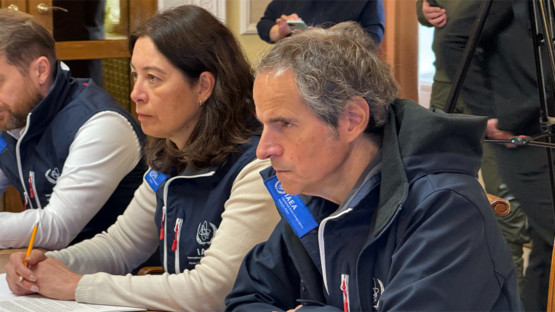The IAEA Director General and his team of experts were in Kyiv today to meet with President Zelenskyy, before travelling south to visit Zaporizhzhya Nuclear Power Plant.
Rafael Mariano Grossi informed the president of the main goals of the mission, which will be to assess the status of current power and cooling systems essential for the safety of the plant, and the levels of qualified staff, among others.






